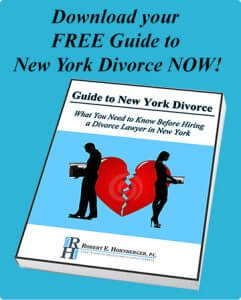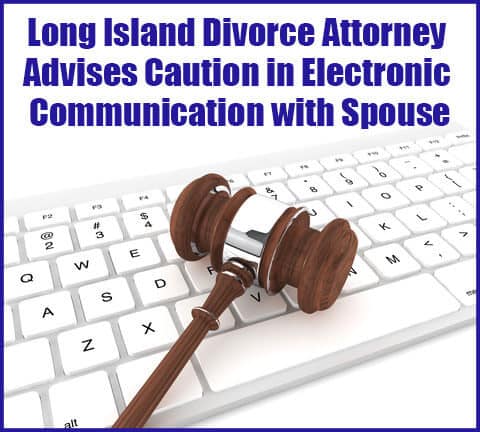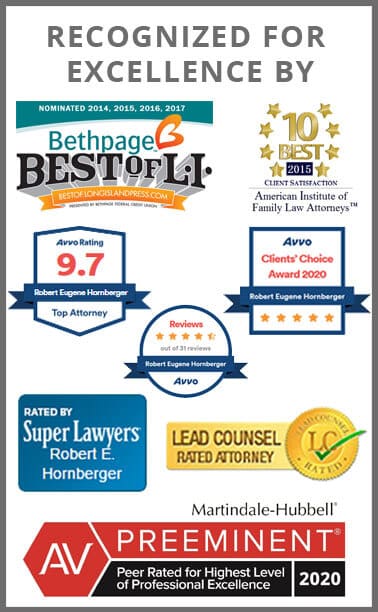A Child’s Punishment for Adults Who Act like Children in Long Island Child Custody Cases in Nassau & Suffolk
According to one New York judge, those obnoxious emails and text messages you send to your spouse could wind up doing more than just angering your spouse or embarrassing you one day. They could land you in jail.
The April 20, 2015 Supreme Court matter of L.T. v. K.T. focused on, amongst other things, the Defendant father’s continuous and routine harassing and threatening emails and text messages to the Plaintiff mother. The judge, although aware that this behavior is, unfortunately, not uncommon in matrimonial matters, took a stand against this type of ridicule and ordered the Defendant father to spend fifteen (15) days in jail. The equivalent of sending a child to his room after he misbehaved.
The Child Custody & Visitation Case of L.T. v. K.T.
The parties’ matrimonial matter began like most do, with motion practice attempting to resolve the issues of child custody and visitation. In an effort to resolve the issues without extensive court appearances, the parties and their attorneys placed two (2) stipulations on the record in open court – one pertaining to child custody and visitation and the other pertaining to financial matters. The Plaintiff mother eventually found herself in a situation that required her to file a motion seeking to have the Defendant father held in contempt of Court, because, amongst other things, he failed to limit his communication with her to one (1) e-mail per day for the sole purpose of discussing the children.
The Plaintiff mother provided documentary evidence to the court, consisting of numerous e-mails and text messages she received from the Defendant father. These communications had nothing to do with the parties’ children, and were merely the Defendant father unleashing his anger on the Plaintiff mother. Included in these communications were the Defendant father stating the Plaintiff mother was “the stupidest person [he] ever encountered”, telling the Plaintiff mother “f*ck you”, stating that he was “the competent parent…as always” and that the Plaintiff mother should remember the phrase “welcome to McDonald’s can I take your order.”
When brought to the attention of the Court, the Defendant father attempted to justify his actions by saying the Plaintiff mother was condescending, and his were simply responses in an attempt to stop her from being a bully. This did not faze the Court. The Court sentenced the Defendant father to serve fifteen (15) days in jail.
Applying this Ruling to your Nassau County or Suffolk County, Long Island Divorce Proceeding
Although the Court’s determination to sentence the Defendant father to jail time was not solely based upon his crude text messages and emails, the language used to support this determination shows that the Supreme Court does not take childish e-mails and behavior by parents lightly. The Court focused on the fact that the parties had joint custody of the unemancipated children who were the subject of the proceeding. Joint custody requires the parents to co-parent and work together as a team. If one parent cannot say anything to the other without cursing or belittling the other parent, it is unlikely a joint custody arrangement is proper.
How should the parents resolve this? The Court stated “Get over it. If the parties want their joint custody to work, they must make it work.” In my legal opinion, the Court made its views on childish behavior by parents more than clear with that one simple sentence.
As an experienced Long Island Divorce Attorney I understand that emotions run high during and after divorce proceedings. However, I always advise my clients to try their best to keep their emotions, especially anger toward their spouse, at bay, and this ruling justifies my advice. The worst thing a client can do is send a nasty e-mail or text message to their spouse. As with everything these days, once you transmit this correspondence you cannot get it back. Instead, I urge clients who are struggling with anger to write things down in a journal or other private place or discuss them with a trusted friend or family member. I find that the majority of times it is not that my client wants to say these things to his or her spouse, but that he or she simply wants to vent and get it off of their chest.
Get a Free Consultation from an Experienced Divorce Attorney Practicing in Nassau County & Suffolk County, Long Island
For more information about how to protect yourself and your children during your divorce in Nassau County of Suffolk County, contact a Long Island divorce attorney with great experience in all divorce and family law matters. Long Island’s Robert E. Hornberger, Esq., PC and his compassionate and experienced divorce lawyers can help. Call us at 631-923-1910 for a complimentary, confidential consultation or fill out the short form on this page and we’ll get right back to you.
Download our Free New York Divorce Guide








